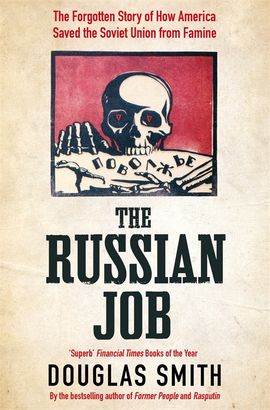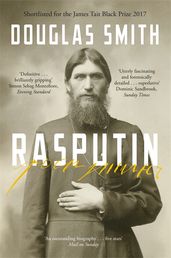
Synopsis
The gripping human story of how American volunteers fought famine in Bolshevik Russia, saving Lenin’s revolutionary government from chaos and millions of people from starvation.
'Brilliant, disturbing . . . an important story that needed to be told. A fast-moving and most compelling read.' - Helen Rappaport, author of The Race to Save the Romanovs
In 1921, after six years of unrelenting war and revolution, Russia was in ruins. The economy had collapsed, the country was ravaged by disease and starvation claimed the lives of millions. People were so desperate for food that there were reports of cannibalism, reports that were revealed to be horribly accurate.
Remarkably, it was a young American aid worker who uncovered the truth and, even more remarkably, it was the US-backed charity that had sent him to Russia that would save Lenin’s fledgling government by feeding his people.
In The Russian Job, acclaimed historian Douglas Smith tells the gripping story of how an American charity fought the Russian famine. Backed by $20 million from the US government, and founded by Herbert Hoover, US Secretary of Commerce, the American Relief Administration recruited more than three hundred young Americans, many of them war veterans. They would oversee the distribution of food, clothing and medical supplies to people throughout Russia’s vast landmass, saving millions of lives.
Vividly written, with a rich cast of characters and a deep understanding of the period, The Russian Job shines a bright light on this strange and shadowy moment in history.
Details
Reviews
These young men come to life in Smith’s book, flickering past like characters in the black-and-white movies of the era. Their heroism and failings, their love of Russia (and Russian women) help humanize a story that could all too easily slip into the grim abstraction of statistics, which touch neither mind nor heart. Despite the epic sweep, the horror and moral splendor of this story, it is essentially unknown . . . This book, Smith says at the outset, 'seeks to right this wrong.' It succeeds. Clear, forceful, and compelling, The Russian Job tells us what happened and who made it happen.
The American troops who landed in Russia to help reverse the Bolshevik coup of 1917 did little to change history, but cast as imperialist villains, they were useful to Soviet propagandists charged with rewriting it. In The Russian Job, Douglas Smith tells the remarkable tale of a different, largely forgotten yet infinitely more effective intervention . . . A well-written account of a story that should not have passed into obscurity.
The Russian Job by Douglas Smith repudiates the modern mythologies of both [the United States and Russia], and their leaders’ twisted histories . . . It is not just Russia that needs to be reminded of this story – so does America, which derived much of its 20th-century greatness from its values rather than military power.
Based on rich archival materials, [The Russian Job] focuses on a group of young Americans who set off for Russia, lured by the exotic and the unknown, and found themselves in the middle of a horrific tragedy . . . Rare photos included in the book lend Smith’s account an eerie vividness.

